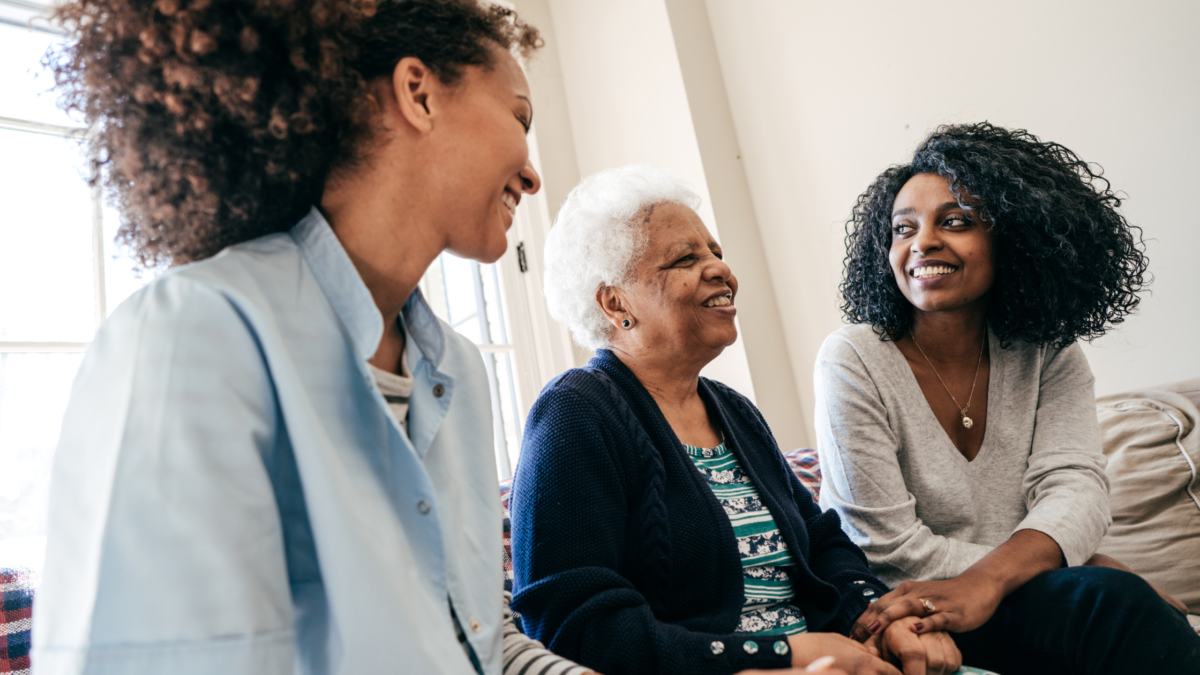I don’t remember what age it started, but, at one point, the grandma I visited the most started ending each visit, phone conversation or otherwise, with a comment like, “Well, if I’m still around, I will see you next time.” At first, I didn’t give it much thought but then she kept insinuating the same message every time… that she may not be around much longer.
She didn’t have a specific health ailment but was seeing friends and family members about her age pass away. Now, I am watching family and friends that are my parents’ age getting unexpected calls, attending funerals, and sending sympathy cards regularly. It’s no wonder it became top of mind, and it’s helped me better understand my grandmother’s mindset.
Scolding Grandma
With October being National Estate Planning Awareness Month, it’s important to be aware that about 60% of Americans still pass away without estate planning documents in place. It’s a tough subject to want to address, so the majority don’t. And even when they do, it can be challenging.
One retiree told me recently that she was trying to communicate with her adult children verbally about her written wishes and the location of those documents when one of the teenage grandchildren happened to walk by and overheard some of the conversation.
“Stop talking like that, Grandma!” was his scolding reaction. He wasn’t the intended recipient of the information in this case, but his words definitely reflect a common family reaction when trying to talk about what can feel like a difficult topic.
Grandma as a Widow
On the one hand, we have what has been referred to as a tsunami in the United States, with folks retiring to the tune of 10,000/day for the next 10-15 years! And with health care and medical advancements, it’s projected that many may spend over a third of their lifetime in retirement.
But on the other hand, the average age of a widow in the United States is 57. So those young, unexpected loss of life events continue to happen as well. 80% of married men die married, and 80% of married women die single. And since this isn’t an IF but a WHEN situation, we women should be especially realistic about preparing for it sooner than we ever anticipate it happening.
Soapbox for Grandmas
The number one reason people don’t buy life insurance is that they fear they will jinx themselves and die sooner. I have a feeling that mindset may be at play here with estate planning as well. But the reality is that we all know someone who has died unexpectedly young.
We hope that won’t be us or anyone in our family but to do nothing about something inevitable at whatever age seems not only irresponsible but unloving to me. Sorry, this is a soapbox for me, likely because I am in an industry that sees these sad stories regularly.
Sad Stories
I talked with a woman who had been widowed young with two small children, and no life insurance in place on her husband who had passed away unexpectedly. Moving forward with nothing, she survived very well monetarily but to this day still struggles with the fear of financial insecurity because of her widowhood experience.
I watched a 401k plan go to the brother of a decedent instead of his long-time spouse because a beneficiary form was never updated after he married decades ago. I heard the story of a successful businessman, with four businesses, who left his wife a mess. No business succession documents, no estate planning documents, asset titles and beneficiaries were a mess, and there were four pole sheds of “stuff” to be dealt with.
That is why every one of every age who owns anything of value (i.e., bank accounts, real estate, retirement/investment accounts, etc.) and cares about who it goes to, needs to be aware of and take action on not just the estate planning documents but the “homework” as well that goes with that (account titling, beneficiary designations, etc.).
To help understand consequences, get organized, and finish taking action, there are many resources out there. Use whatever format is most likely to help you get this done: a book, webinar, course, DIY checklists, etc.
One example is a series of fillable checklists that I have designed and compiled, called the Everyone Bundle. And watch for my online course that will be a self-paced DIY process that will serve as your accountability partner to nudge, encourage, and hold your hand through the entire process.
Thanking Grandma
From my experience, helping families with financial planning for over 20 years, estate planning is still the most procrastinated, back burner area. So, instead of saying, “Don’t talk like that, Grandma!” my comment would be, “Thank you for talking like that, Grandma!” That way your family will thank you someday instead of cursing you for leaving them a mess.
Let’s Have a Conversation:
Have you brought up the estate planning subject with your family? What was their reaction? Or is there something that is holding you back from talking with them and documenting your estate planning? Have you had or heard sad stories related to a lack of estate planning?
Marie Burns is a Certified Financial Planner, Speaker, and Author of the bestselling Financial Checklist books. Find Marie on Facebook or contact her at [email protected]
This article was first published at 60 and Me – a community that helps women over 60 live happy, healthy and financially secure lives.

